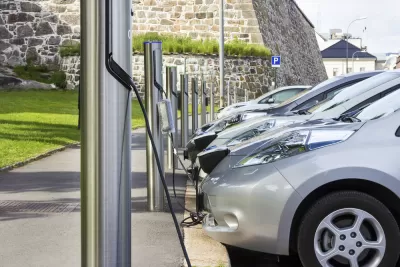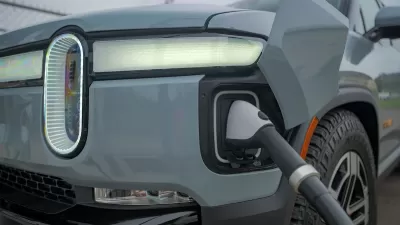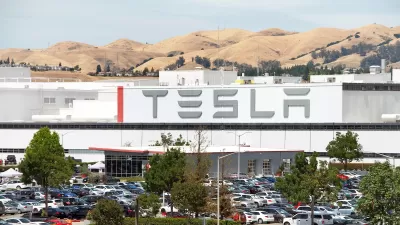With the pandemic and Russia's invasion of Ukraine upending supply chains, the cost of raw materials needed to produce electric car batteries is soaring.

Hyunjoo Jin reports on the shortages facing the electric car industry, particularly as Russia's invasion of Ukraine threatens crucial material supplies. "Rising prices of nickel, lithium and other materials threaten to slow and even temporarily reverse the long-term trend of falling costs of batteries, the most expensive part of EVs, hampering the broader adoption of the technology, said Gregory Miller, an analyst at industry forecaster Benchmark Mineral Intelligence." As Jin writes, "Benchmark Mineral Intelligence said battery producers started increasing lithium-ion cell prices late last year in response to the higher raw material prices they had seen throughout 2021."
According to Jin, "The conflict in Ukraine has only raised the stakes, pushing nickel and aluminium prices to record highs on Monday on growing fears exports from leading producer Russia could be disrupted. Lithium prices also have increased, more than doubling since year end, as supply fell short of rising demand." Coupled with other supply chain issues caused by the COVID-19 pandemic, this could have a significant impact on electric vehicle production and costs.
The article details the cost increases and production delays experienced by various EV manufacturers. Electric truck maker Rivian raised the cost of its vehicles by 20 percent for new orders, while Tesla abandoned plans to build a $25,000 car.
FULL STORY: Analysis: Ukraine invasion sets back Musk's dream for cheaper EVs, for now

Alabama: Trump Terminates Settlements for Black Communities Harmed By Raw Sewage
Trump deemed the landmark civil rights agreement “illegal DEI and environmental justice policy.”

Planetizen Federal Action Tracker
A weekly monitor of how Trump’s orders and actions are impacting planners and planning in America.

Why Should We Subsidize Public Transportation?
Many public transit agencies face financial stress due to rising costs, declining fare revenue, and declining subsidies. Transit advocates must provide a strong business case for increasing public transit funding.

Understanding Road Diets
An explainer from Momentum highlights the advantages of reducing vehicle lanes in favor of more bike, transit, and pedestrian infrastructure.

New California Law Regulates Warehouse Pollution
A new law tightens building and emissions regulations for large distribution warehouses to mitigate air pollution and traffic in surrounding communities.

Phoenix Announces Opening Date for Light Rail Extension
The South Central extension will connect South Phoenix to downtown and other major hubs starting on June 7.
Urban Design for Planners 1: Software Tools
This six-course series explores essential urban design concepts using open source software and equips planners with the tools they need to participate fully in the urban design process.
Planning for Universal Design
Learn the tools for implementing Universal Design in planning regulations.
Caltrans
Smith Gee Studio
Institute for Housing and Urban Development Studies (IHS)
City of Grandview
Harvard GSD Executive Education
Toledo-Lucas County Plan Commissions
Salt Lake City
NYU Wagner Graduate School of Public Service





























